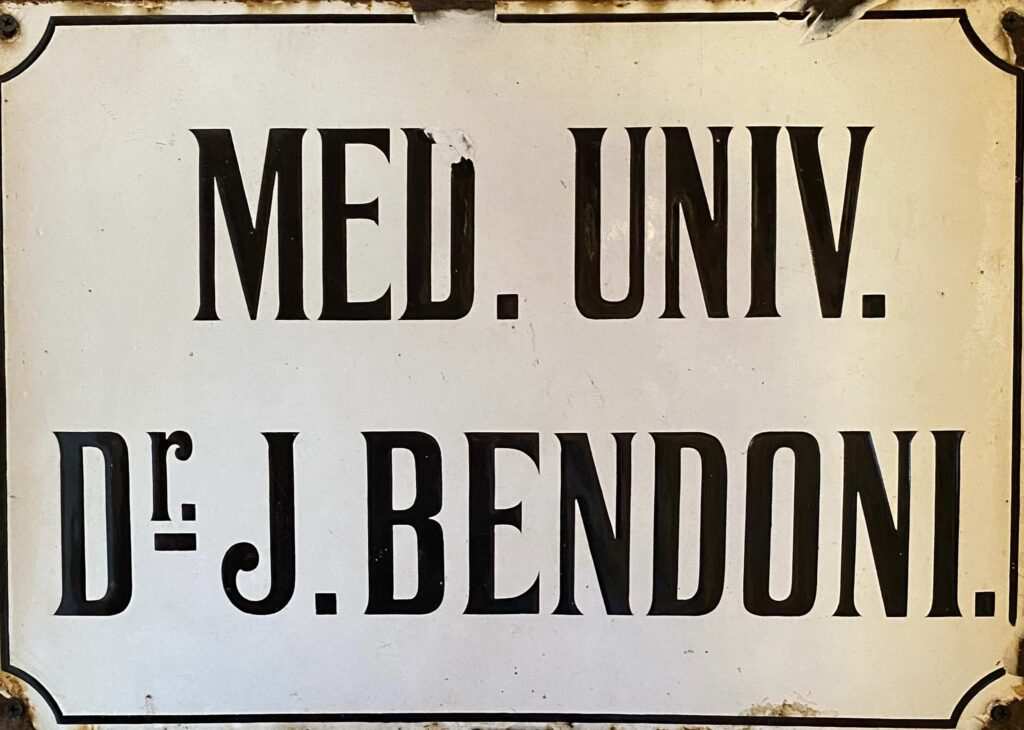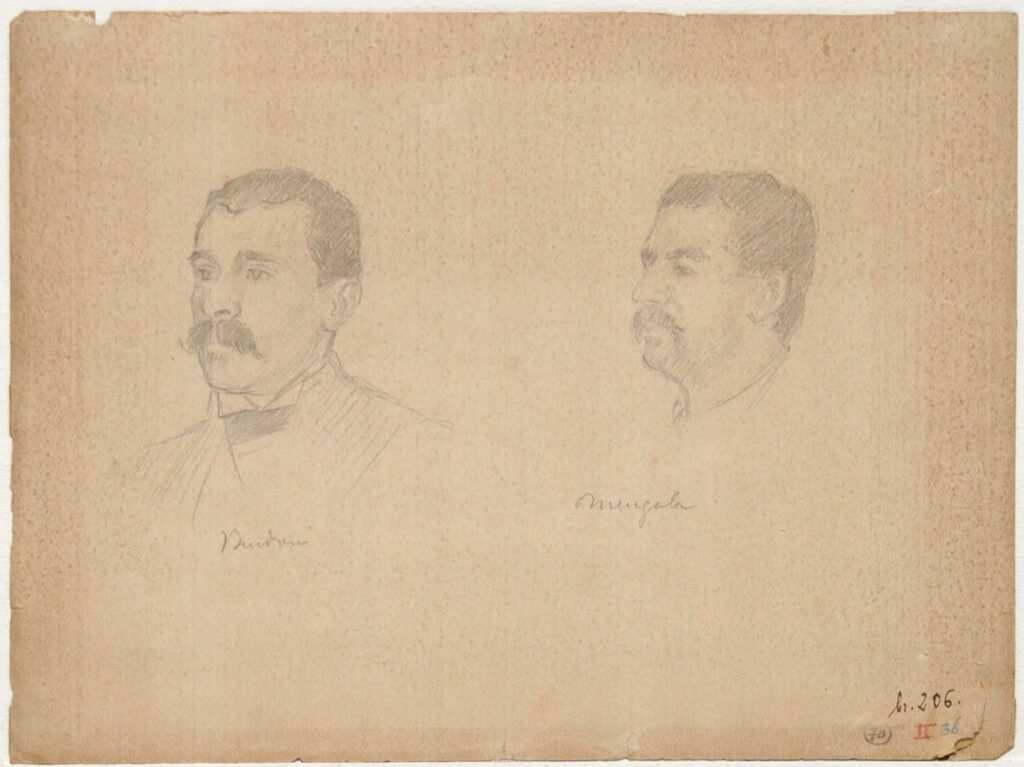New health laws for Croatia and Slavonia, as well as for Istria and Dalmatia, passed in 1874, significantly improved the state of the healthcare service. Certainly, the most important provision of this law was that each municipality, alone or together with several other municipalities, must have one municipal doctor and had to establish a health commission of which the municipal doctor was a member. The introduction of this law in Dalmatia initiated the work on matters such as the institutionalisation of healthcare, combating malaria, improving water supply, arranging cemeteries. At the time, the central medical authority in Dalmatia was the Provincial Health Council, established by the Health Department of the Zadar Regency.
Since the 1890s, the municipal doctor in Cavtat had been Dr Josip Bendoni. He moved to Cavtat with his parents, Josip and Marija Bendoni, and three sisters from Korčula. In January of 1892, Dr Bendoni, a physician from Cavtat, was mentioned as one of the guests at a dinner in honour of Miho Klaić; the event in question was reported in detail by the Crvena Hrvatska newspaper:
On Monday, a lavish dinner in the honor of Mr Miho Klaić was organised by his friends and political associates at the Bačić Hall. The event was also attended by other Croats from Dubrovnik, as well as by the municipal prefects and prominent members of the patriotic People’s Party from the entire surrounding area. 90 people sat down at the long table, greeting Mr Klaić warmly when he showed up at the door of the hall, which was decorated in tricolour flags, while the musicians were playing a welcome number.
The dinner was attended by Kosta Vojnović, Pero Čingrija and Frano Supilo, and Dr Bendoni advocated for raising funds for the medical university, and during these toasts a sum of 81 florins was gathered.
In addition to his medical work, for which he was known and loved in Cavtat and the surrounding area, Dr Bendoni was very active in the political and social life of the local community. In 1894, Pavo Kostopeč from Uskoplje wrote him an open letter of gratitude and had it published in the Crvena Hrvatska newspaper:
`My wife Pave had fallen ill and no medicine did her any good, so we all feared for her life. In such great distress I turned to the doctor in Cavtat, the highly educated Dr Josip Bendoni, who immediately set out to save her with all his science. He spared no effort nor travel, and would visit uninvited at any time and treated her with great care; by doing so, he saved her from certain death. There is no payment that would be enough to fully reward such work, so I know no better way to repay him other than a public expression of thanks, so that the others may also know about his erudition, while he has my eternal gratitude!‘
Such expressions of gratitude were not uncommon in Dr Bendoni’s medical work. He also saved a certain Mr Luka Gjuraš, who was stabbed with a knife, `and whose intestines lay spilled out until 10 o’clock the following day, when the diligent Dr Josip Bendoni arrived and made the surgery an absolute success.‘
Dr Bendoni was active in the Red Cross; he was also a member of the board of the Croatian Reading Room, as well as of the Dubrovnik Beautification Society. Furthermore, he would often donate money for various charitable purposes and give lectures on health culture for the residents of Cavtat and Dubrovnik.
Like many of his fellow residents in Cavtat, he was immortalised in a painting by his friend Vlaho Bukovac. The painting in question was a large composition named Karneval u Epidauru (Carnival in Epidaurus), which holds great significance for the people of Cavtat.
Dr Josip Bendoni married a Cavtat native Jelka Kalačić in 1901.

Baltazar Bogišić Collection
At the beginning of 1907, Dr Bendoni moved to Dubrovnik, where he opened a medical practice, while in 1908 he became a physician in Vela Luka on the island of Korčula.
That period of his life was marked by frequent quarrels provoked by his political opponents who wished to belittle his achievements and contributions by publishing untruths in the Prava Crvena Hrvatska newspaper; luckily, the residents of Vela Luka and Cavtat would respond to and expose such unfounded libels.
Dr. Josip Bendoni passed away on 29th July 1921 at the age of 61 and was buried in the Cavtat cemetery.


